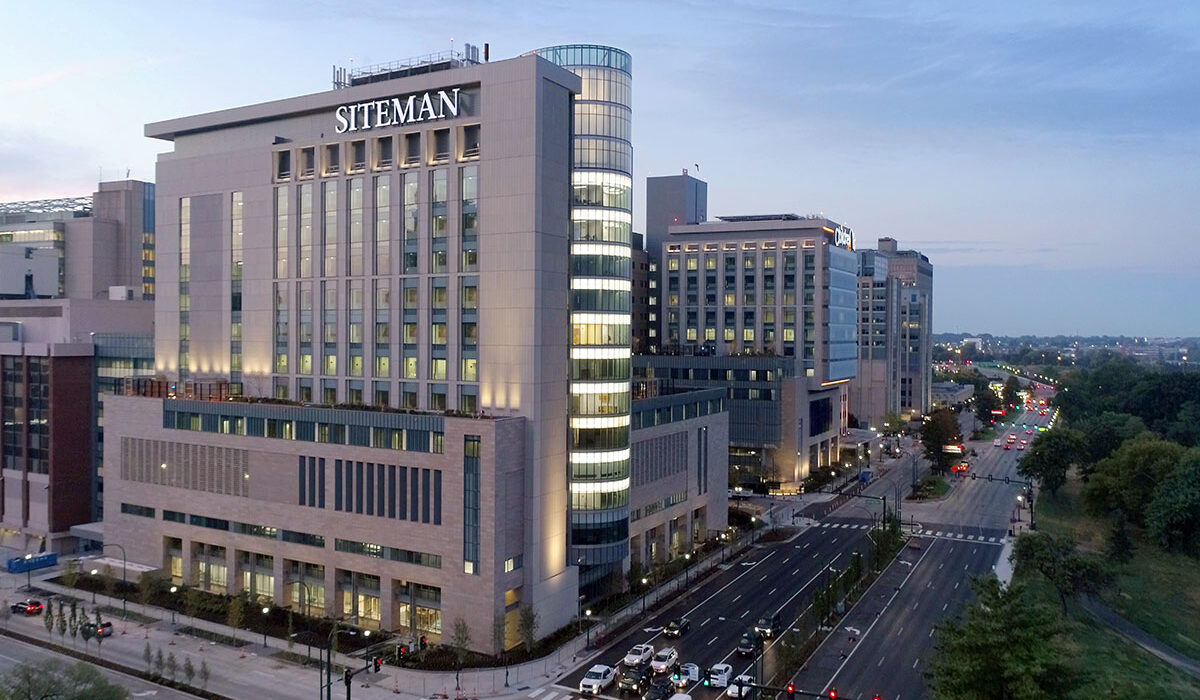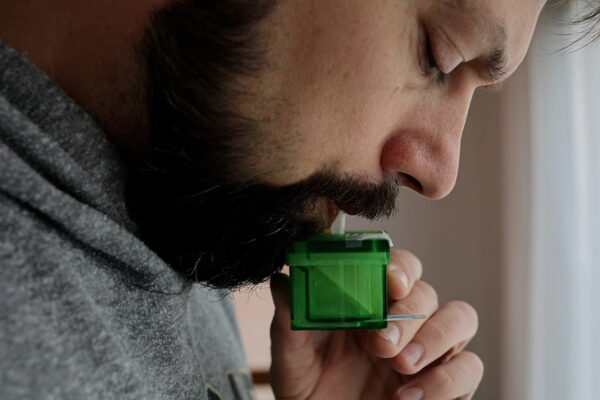Siteman Cancer Center, based at Barnes-Jewish Hospital and Washington University School of Medicine in St. Louis, has earned a prestigious Merit Extension Award from the National Cancer Institute (NCI), part of the National Institutes of Health (NIH). The award extends Siteman’s current Cancer Center Support Grant for an additional two years and provides $12 million to continue NCI support for innovative cancer research, training, prevention and community outreach programs.
Siteman was invited to apply for the award after receiving two consecutive “exceptional” ratings — the highest possible — from the NCI in its previous grant renewal cycles. Siteman’s current $36 million Cancer Center Support Grant was last renewed in 2020 and would have been up for renewal in 2025. With the extension, the center now is funded until 2027, without having to undergo a complete review of its programs.
“This merit extension is an acknowledgement by the NCI that the impact of all segments of Siteman Cancer Center is truly exceptional,” said Timothy J. Eberlein, MD, Siteman’s director and the Spencer T. and Ann W. Olin Distinguished Professor. “To receive this extension, a cancer center must excel across all of its programs and initiatives, which requires a massive effort by many people, whether they focus on research, prevention, training, patient care or community outreach. It’s an acknowledgement of the contributions each person makes that collectively make Siteman Cancer Center such a special place.”
Siteman is the only NCI-designated comprehensive cancer center in Missouri and southern Illinois.
Among many focus areas, the merit award highlights Washington University’s accomplishments in cancer research, with a steady stream of discoveries in the laboratory that have been translated into new clinical trials. Such clinical trials are a key part of the comprehensive and innovative care that patients receive at Siteman.
For example, programs focused on breast cancer have revealed possible new ways to treat triple negative breast cancer, an aggressive form of the disease that disproportionately affects African Americans. Cancer researchers also continue to make major contributions to harnessing the latest genome sequencing technologies, many developed at Washington University, to inform cancer care. Washington University scientists, who also are research members of Siteman Cancer Center, are developing new and innovative ways to attack cancer via the anti-tumor properties of the immune system, including cell-based immunotherapies and vaccines that target various types of cancer.
Siteman continues to be a leader in providing education and training to the next generation of cancer specialists and researchers, with a particular focus on supporting Washington University physician-scientists, who are uniquely placed to combine their experiences in patient care with their training as scientists to make key discoveries that could lead to new and better cancer therapies.
Siteman’s community outreach efforts also have made major contributions to cancer prevention and screening in the St. Louis region as well as across Missouri and much of southern Illinois. Increased access to screening opportunities, including mammography and colonoscopies, have improved detection and early treatment for breast and colorectal cancer. According to data from Washington University, breast cancer mortality among African American women treated at Siteman dropped by about one-third from 2016-20. And over the past 10 years, the number of counties considered “hot spots” of high colorectal cancer death rates has dropped from 31 counties out of 82 across the region to 11 out of 82.
“We have had the opportunity to gather an enormous number of experts in many aspects of cancer research and care — whether it be providing patient care and conducting clinical trials, performing basic and translational research, evaluating prevention studies and approaches to cancer prevention and early detection, providing education and training, building on our diversity efforts, or working outside the cancer center to build partnerships with community organizations,” Eberlein said. “The people who do this extraordinary work represent virtually every department at the School of Medicine and many departments and programs over the entire university. All this combines to make Siteman a special place to do this work and a special place to receive care.”
Siteman Cancer Center is supported by the National Cancer Institute of the NIH, under Comprehensive Cancer Center support grant number 5P30CA091842-22.
About Washington University School of Medicine
WashU Medicine is a global leader in academic medicine, including biomedical research, patient care and educational programs with 2,800 faculty. Its National Institutes of Health (NIH) research funding portfolio is the third largest among U.S. medical schools, has grown 52% in the last six years, and, together with institutional investment, WashU Medicine commits well over $1 billion annually to basic and clinical research innovation and training. Its faculty practice is consistently within the top five in the country, with more than 1,800 faculty physicians practicing at 65 locations and who are also the medical staffs of Barnes-Jewish and St. Louis Children’s hospitals of BJC HealthCare. WashU Medicine has a storied history in MD/PhD training, recently dedicated $100 million to scholarships and curriculum renewal for its medical students, and is home to top-notch training programs in every medical subspecialty as well as physical therapy, occupational therapy, and audiology and communications sciences.
About Siteman Cancer Center
Siteman Cancer Center, ranked the No. 10 cancer treatment center by U.S. News & World Report, also is one of only a few cancer centers to receive the highest rating of the National Cancer Institute (NCI) – “exceptional.” Comprising the cancer research, prevention and treatment programs of Barnes-Jewish Hospital and Washington University School of Medicine in St. Louis, Siteman treats adults at six locations, including an inpatient hospital, and partners with St. Louis Children’s Hospital through Siteman Kids in the treatment of pediatric patients. Siteman is Missouri’s only NCI-designated Comprehensive Cancer Center and the state’s only member of the National Comprehensive Cancer Network. Through the Siteman Cancer Network, Siteman Cancer Center works with regional medical centers to improve the health and well-being of people and communities by expanding access to cancer prevention and control strategies, clinical studies and genomic and genetic testing, all aimed at reducing the burden of cancer.



